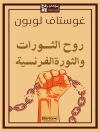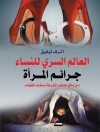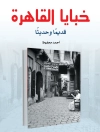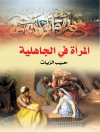’The Life of Christopher Columbus’ is an illuminating anthology that intricately weaves together narratives and historical documents, offering a comprehensive exploration of Christopher Columbus’s voyages and their enduring impact on world history. Traversing a wide spectrum of literary styles—from firsthand accounts to reflective essays—this collection presents a multifaceted portrait of Columbus, emphasizing the diversity of interpretations surrounding his life and legacy. The works contained within offer insight into the era’s geopolitical and cultural climates, drawing attention to the marked contrast between admiring tributes and critical examinations of Columbus’s endeavors. The anthology features contributions from notable figures such as Edward Everett Hale, whose historical assessments provide depth and context to Columbus’s expeditions. These narratives engage with crucial themes of exploration, discovery, and the resultant cultural exchanges, aligning with significant historical movements like the Age of Exploration. Through the varied voices represented, readers gain access to a vibrant tapestry of perspectives that communicate the complexities of Columbus’s character and the transformative period he helped to inaugurate. ’The Life of Christopher Columbus’ is an indispensable resource for those seeking to understand the nuanced impact of Columbus’s voyages on global history. This collection affords the reader a unique vantage point to engage with a spectrum of insights, encouraging a dialogue that bridges past and present. Ideal for scholars and history enthusiasts alike, it affords an educational journey through time, captivating with its breadth of information and the interplay of diverse perspectives within a single, thought-provoking volume.
Om författaren
Christopher Columbus, the Genoese navigator and explorer, boasts a complex and multifaceted legacy, often overshadowed by his historic voyages across the Atlantic in the late 15th century. While not traditionally recognized for his contributions to the written word, his text ’The Life of Christopher Columbus’ stands as a testament to his experiences and thoughts. Columbus’s literary output primarily stems from his journals, letters, and reports to his royal patrons, King Ferdinand and Queen Isabella of Spain. His work provides an unparalleled glimpse into his voyages, the places he visited, and his interactions with indigenous peoples. In recounting his own exploits, Columbus leverages a narrative style that is both self-justifying and aimed at securing further patronage, painting himself as an intrepid pioneer and a devoted servant of the Spanish Crown. His writings, though informative, have been critiqued for their Eurocentric viewpoint and problematic representations of the New World and its inhabitants. Columbus’s legacy, forever intertwined with the Age of Discovery, is a contested one; historian and literary scholars debate the veracity and interpretive nature of his accounts, the impact of which has resonated through centuries of exploration literature. Columbus’s works remain a cornerstone in understanding the era’s ideologies and the inception of European colonialism.












